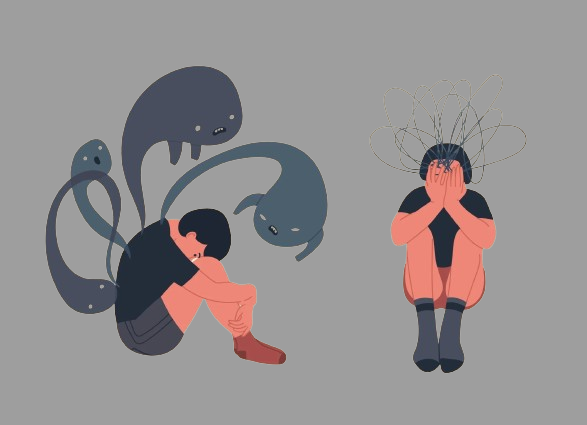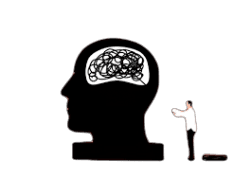A stressful incident can trigger an abrupt, transient display of psychotic behavior, such as delusions or hallucinations, which is known as brief psychotic illness.
This article explains signs and symptoms, all possible causes, diagnosis and treatment options for those who are suffering psychotic symptoms.
What is brief psychotic disorder?
A person suffering from a short psychotic condition goes through periods of psychosis that extend beyond a single day but do not exceed a month.
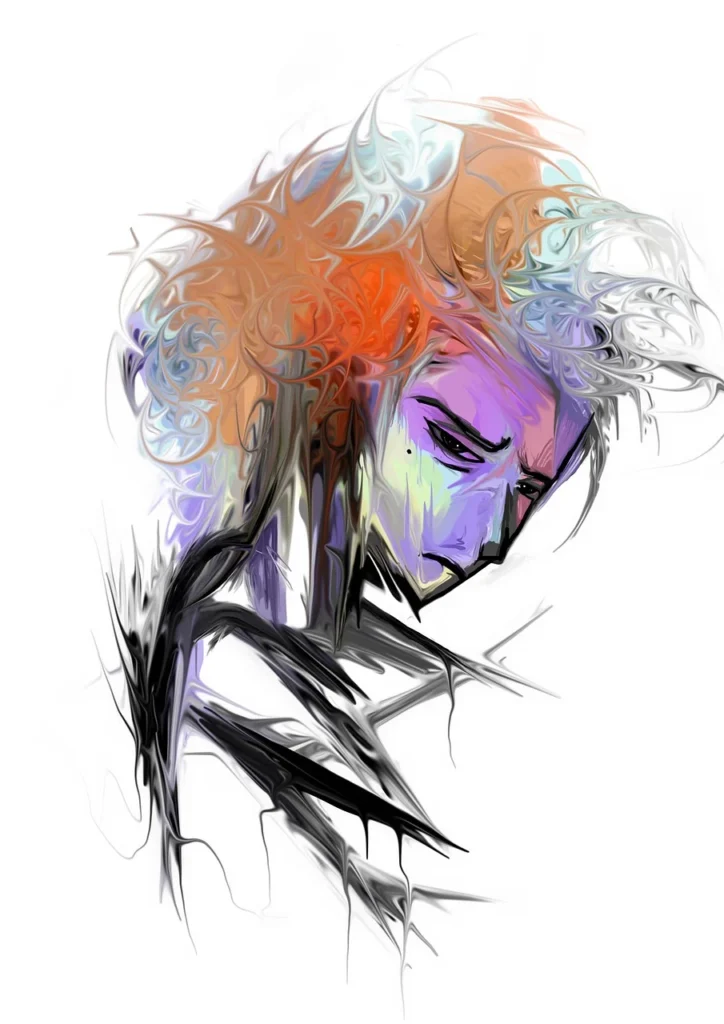
An individual’s functioning returns to normal when they have atypical firm beliefs, hallucinations, or catatonia, such as disorganized speech or conduct. Because the short psychotic condition can be brought on by severe stress or by a later event, like pregnancy or childbirth, it is usual for it to afflict a wide range of people.
To stay safe during these episodes, people with this illness may require supervision. The degree of psychosis a person is experiencing will dictate how much assistance they need. It’s not usually the case that someone with this mental health issue also has a chronic mental health condition.
Signs and symptoms
Schizophrenia and schizoaffective disorder share many symptoms with brief psychotic disorder. In contrast to those disorders, short psychotic disorder has a time when its symptoms must go away.
Symptoms includes:
Hallucinations
A hallucination is an erroneous impression of things or situations that involve your five senses—taste, smell, sight, hearing, and touch. Although they don’t look genuine, hallucinations do. Hallucinations are brought on by chemical interactions and/or abnormalities in the brain.
Although hallucinations are usually a sign of a psychosis-related disorder, especially schizophrenia, they can also be caused by substance abuse, certain neurological disorders, and transient circumstances.

A person may have a hallucination and realize that what they are seeing isn’t real, or they may not. A person’s belief that their hallucinations are genuine is regarded as a sign of psychosis.
Delusions
An unwavering belief in something false is called a delusion. The person has this incorrect notion, which practically everyone else understands to be untrue, and it is not a part of their society or subculture.
Non-bizarre delusions are common in people with delusional disorder. Non-bizarre delusions are those that center on scenarios that are plausible in everyday life, such being followed, tricked, or loved from a distance. These illusions typically entail misinterpreting experiences or perceptions. These scenarios are either wildly inflated or incorrect in reality.
Unlike weird delusions, which comprise ideas that are not consistent with reality, like thinking that an organ has been removed from your body without any physical proof, non-bizarre delusions do not involve such notions. Oftentimes, people with delusional illness are able to maintain their social lives.
Disorganized speech
Individuals who have disordered speech patterns may answer questions incoherently, say things that don’t make sense, or change topics frequently. The following are indicators of speech that is not coherent: Inaccurate associations abruptly switching between subjects without making any links.
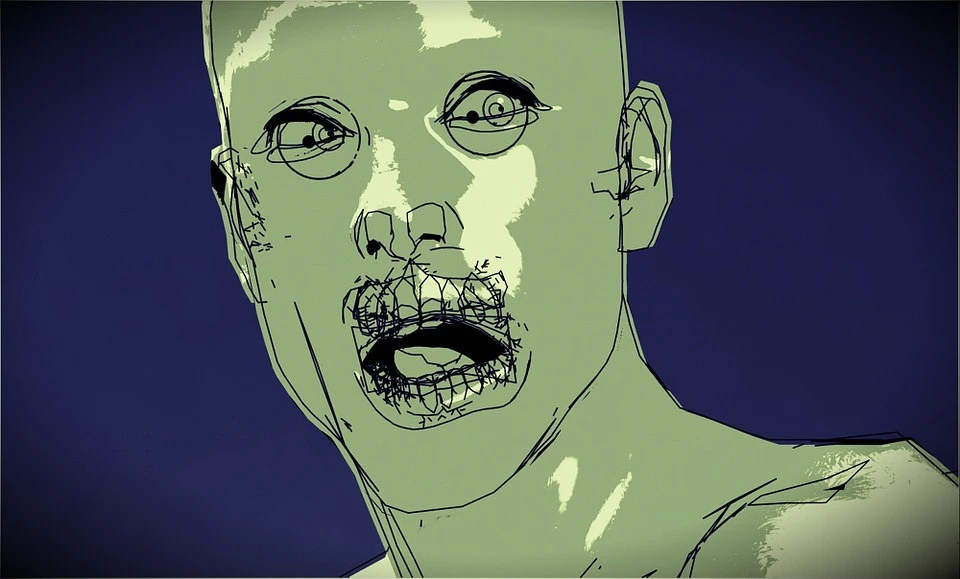
This phenomenon, also known as derailment, happens when someone makes connections between concepts or phrases that don’t seem to belong together. They could jump right from one seemingly unrelated topic to another. They might say something like, “I went to the store today,” as an example. The game of soccer is boring.
Catatonic behavior
A collection of symptoms known as catatonia often involves a lack of movement and speech, although they can also include restlessness, agitation, and bewilderment.
It was considered to be a kind of schizophrenia until recently. Doctors now know, however, that catatonia can also result from other mental disorders and certain ailments that disrupt your body’s metabolism. Catatonia affects about 1 in 10 people with serious mental disorder at some point.
Although catatonia is treatable, untreated cases can have potentially fatal consequences.
Causes and diagnosis
Numerous research works have connected hereditary variables to the etiology of short psychotic disease. Extreme stress brought on by a terrible experience or the death of a loved one are additional causes.
A doctor, psychiatrist, or mental health clinician will conduct an interview and use the results to diagnose short psychotic condition. In order to obtain a more accurate diagnosis, interviews with the person’s friends, family, and other affected parties will also be conducted.
A terrible accident or the loss of a loved one are examples of traumatic situations that might lead to short psychotic illnesses. It is not known to be caused by any biological, genetic, or environmental causes.
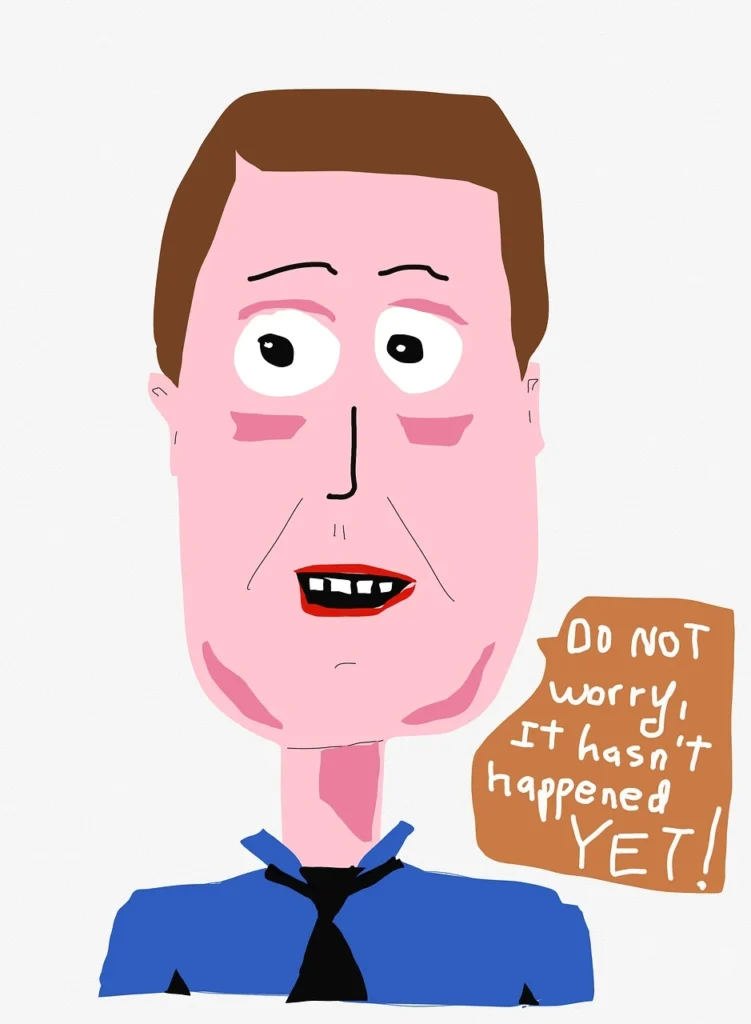
Another factor that can set off the symptoms of short psychotic illness is pregnancy. It is more common for women to have then men. Some persons who do not have a mental disease may experience postpartum psychosis due to trauma from childbirth or hormonal changes. Psychiatric conditions that might cause postpartum psychosis include schizophrenia, bipolar disorder, severe depression, and schizoaffective disorder.
Treatment
The duration of brief psychotic illness is brief. There is a possibility that it will go away on its own in a few weeks. But if you don’t get medical attention, your symptoms could make it harder for you to take care of other people and yourself. If left untreated, transient psychotic disorder can affect social interactions, work performance, and academic performance. There’s a chance that your personal safety is in danger. Seeking expert assistance can assist you in controlling your symptoms and preventing recurrence.
Psychotherapy can assist in helping you understand the traumatic events or situations that led to your symptoms, and certain drugs, for instance, may lessen the likelihood of hallucinations and delusions. For certain individuals, hospitalization could be an option.
Medications
Health practitioners currently employ treatments that have been helpful for other psychotic illnesses because there have been few clinical trials particularly looking at interventions for short psychotic disorder.

The mainstay of care for short psychotic illness is antipsychotic medication. After your symptoms have subsided, you will generally be requested to take your medicine for another one to three months.
Atypical psychotics
Atypical or second-generation antipsychotic drugs appear to have the fewest negative effects.
Usually, medical specialists advise trying this kind of drug initially. Choices consist of:
- paclitaxel with paliperidone
- Risperidone
- ziprasidone,
- clozapine,
- aripiprazole,
- and olanzapine
Typical antipsychotics
In the event that atypical antipsychotic medicine is ineffective, your healthcare provider may recommend first-generation, or typical, antipsychotics like:
- trifluoperazine,
- thioridazine,
- fluphenazine,
- haloperidol
- chlorpromazine
Psychotherapy
While medication may alleviate symptoms, psychotherapy may help you learn stress management and coping skills for challenging life events. This helps to stop short psychotic condition from happening again.
Cognitive behavior therapy (CBT)

Talk therapy that focuses on reevaluating mental processes that might be damaging to you is called cognitive behavioral therapy.
Working with your therapist, you try to break bad thought patterns.
Goal-oriented tasks and assignments, such as symptom records and journals, are part of cognitive behavioral therapy.
Group counseling
Couples and family therapy are also possible in group therapy, in addition to meetings with strangers who may have similar symptoms or concerns.
Your family can provide an invaluable network of support. In the event of a major life event such as the onset of transient psychotic episode, therapy with your support system can play a crucial role in your treatment plan.
On the other hand, therapy could be helpful to address the matter if a family dynamic is the source of the stress that has exacerbated your symptoms.

